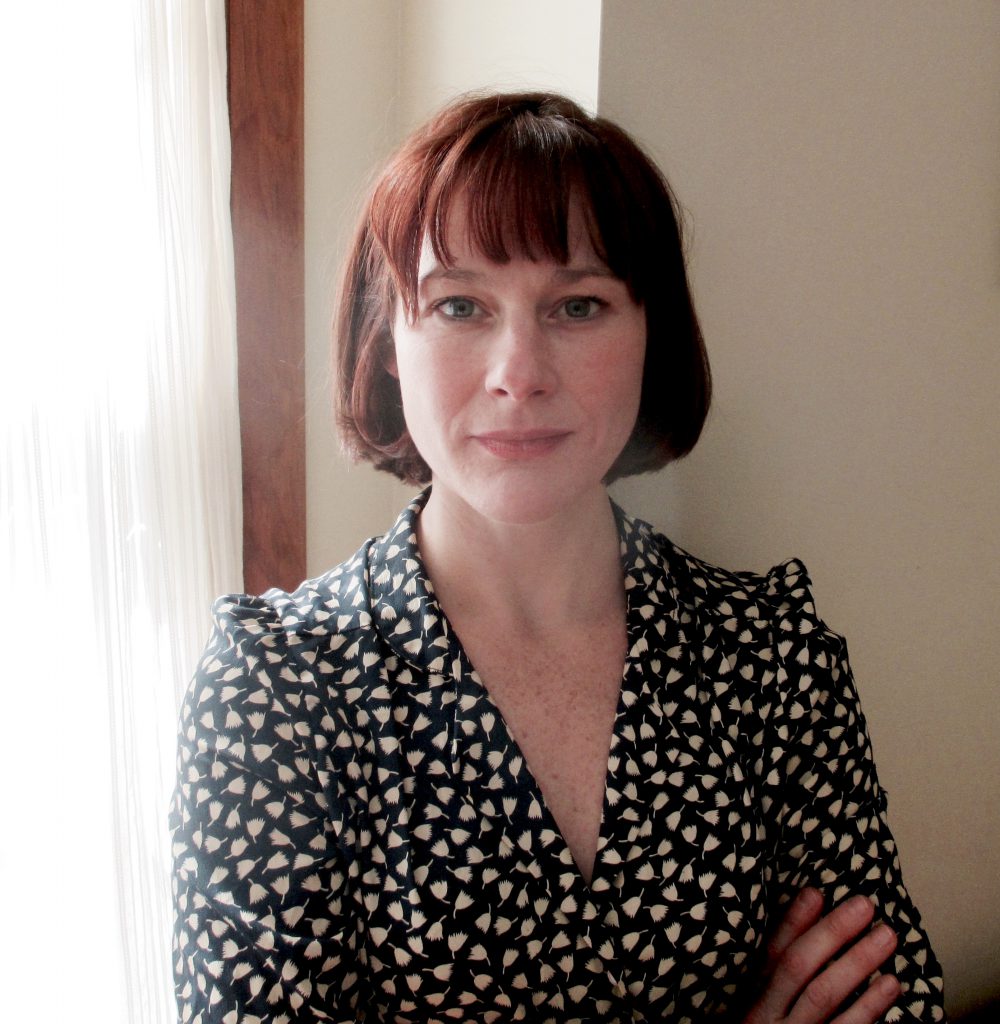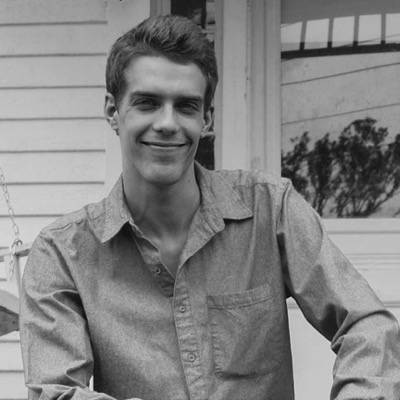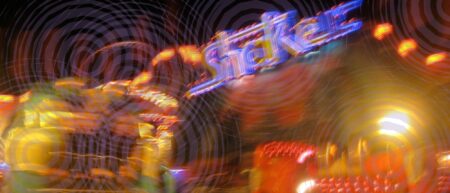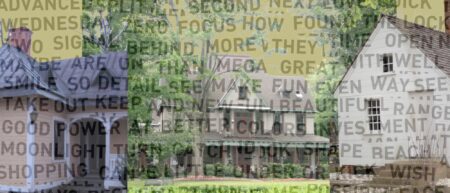I was given the opportunity to interview poet, essayist, and scholar Alison Powell in the middle of the most extreme winter of our generation. A broken polar vortex has sent freezing air spilling across the country; cities are shut down, Fahrenheit and Celsius have met again at -40, and the President is begging on Twitter for a little more of that sweet global warming.
And I just got back from a two-hour rabbit hole on transhumanism, sparked by the very first sentence of “Already We Are Less Than Ever Before.”
If the current state of the world seems a little too real right now, tangled up inappropriately between full-throated existential crisis and sitcom-like absurdity, Powell, clear-eyed but not afraid to sound sentimental, offers a perfect glimpse into what it means to be living our best lives in the Anthropocene. Writing in and through the Sixth Great Extinction, with one eye fixed firmly beyond, Powell guides us through our collective winter with the same narrative confidence that she wields over her form, brushing aside conventions of poetry and essay in order to find a more perfect form of both.
Judge Hanif Abdurriqib draws particular praise to Powell’s new mode, inheriting and subverting multiple traditions while soundly carving out a legacy of its own. “What I most love about nonfiction is when it is written with the ability to surprise and shake free of the constraints piled on,” he says. “I appreciate the essay’s compact nature, which makes all of its movements worthwhile, memorable, and echoing.”
My conversation with Powell illustrates just how much labor—intellectual, aesthetic, and at times emotional—goes into crafting such clean, precise movements. Whether talking about the last lion in Barbary or the first Tesla in space, I’ve learned that Powell’s intuitions can be trusted completely, but that they also don’t have to be: she’s done the research. And when the research turns up unexpected results—when Elon Musk starts to sound more like Marie Antoinette than not—Powell, as visibly baffled as the rest of us, responds in a surprising way: with delight, and a little more determination going forward.
We may already be less than ever before, but, as Powell assures in her unconventionally comforting way, that’s the best we could’ve really hoped for—and it just might be enough.
Alison Powell is a poet, essayist, and scholar of Romantic era poetry. Her creative work has recently appeared in journals including American Literary Review, Black Warrior Review, Copper Nickel, Michigan Quarterly, Prairie Schooner, Public Space, and more; she has recently received fellowships from VCCA and the Crosshatch Center for Art and Ecology. Her first book of poems, On the Desire to Levitate, won the Hollis Summers Poetry Prize and was published by Ohio University Press in 2014. Recent scholarship includes a chapter on depictions of play in Wordsworth’s epic autobiographical poem The Prelude (1805), in Children’s Play in Literature: Investigating the Strengths and Subversions of the Playing Child (Routledge). She is Assistant Professor of Poetry at Oakland University and faculty adviser of the undergraduate literary journal The Oakland Arts Review. Originally from Indiana, Powell now lives in Michigan with her husband and their son and daughter
Daniel Uncapher: I understand that this essay is part of a series. How do the pieces come together?
Alison Powell: It is part of a larger series of “missing files.” Right now I have about 10, and intend to develop the series into a book length manuscript. The project began as a series on species extinction, focusing on cases where the circumstances of death of the last animal is actually known or documented (an example would be the last Barbary lion; some reports indicate it was killed by a hunter on Atlas Mountain in 1942). The project has expanded, though, to more general examples of animal exploitation, and even, as you see in this piece, examining how human beings grapple with their own animality. The pieces also interweave themes of American misogyny, gender identity, consumerism, climate change, and power. it sounds broad, but the connections make sense to me.
DU: Where did the inspiration come from—how do you connect so many vivid, specific, and yet ultimately unexpected elements together? Each detail seems so carefully considered, a small handful of berries picked from a very large garden that taste perfect together.
AP: I’m glad you think so. Hmm. What tends to happen is I become a bit obsessed with a topic – in this case, the founding of cryopreservation, and the desire to have one’s body cryopreserved. In researching the topic I sort of fall into the Internet, like Alice down the rabbit hole. Remember how she talks to herself the whole way down, and starts going on about Mabel, her schoolmate who doesn’t know anything about geography? It’s kind of like that: the strangeness of what I uncover elicits in me other more personal digressions. I research and write my thoughts about what I’ve uncovered, similar to what I do in scholarship – but I just leave the gate open to include my own weird thoughts and personal history. I’m inspired by work that moves in evocative ways between public and private, institutional and domestic; Anne Boyer’s Garments Against Womenopened up a lot for me in terms of what I understood to be possible in my writing. And of course then comes the editing and revising. There’s a lot of that, to get that feeling of careful consideration.
DU: Speaking of rabbit holes, I found myself constantly reaching for my phone to look up a name or phrase, from FM-2030 to what I thought might be John Donne, which in turn tempted me down other internet rabbit holes. Do you encourage this kind of urge in your readers, or should we resist it? Is this essay in itself a kind of “rabbit hole?”
AP: The line “Death, thou shalt die” is from Donne’s Holy Sonnets. John Donne is one of my very favorite (insert noun—essayists, poets, human beings, reluctant skeptics). In fact I was supposed to teach “A Valediction Forbidding Mourning,” “The Flea,” and a number of Holy Sonnets this week but our university has been closed because of the polar vortex. I’ll have to shift everything around because I can’t stomach skipping Donne.
Your question is interesting—I suppose I hadn’t thought much about it. My initial response is that ideally the reader would experience the piece on its own a few times, before moving outside of it. I think that’s because it’s so important to experience a literary text on its own, before opening one’s neural pathways to other mediums and texts. But I know that’s an old-fashioned way of thinking.
DU: As a writer I’m always interested in hearing the specifics of form and process that go into each piece, especially one as formally distinct as this—a single, narrow, justified-left column in five parts. What kind of considerations went into this piece? How much of your poetry expresses itself in your non-fiction, and vice versa?
AP: A lot of what I work on in editing is the tone. In all the “Missing File” pieces I’m aiming for a tone that alternates, I think, between intimacy and detachment. Arranging the parts – deciding what digressions go where—is a big part of the process.
As for form, I am always trying to make the prose blocks feel like, well, as block-like as possible. There’s something about the satisfaction of a square against the rocking-boat of the actual text—the movement back and forth between topics, that is—that feels generative to me. But the poet in me can’t quite abide breaking a line entirely for shape, and so in this piece especially I aimed for a happy medium of sorts.
DU: Would you say that writing can stabilize an otherwise unstable world, then, or would that be going too far?
AP: I wouldn’t say that; it seems too wishful, too contrary to evidence. It’s an interesting idea though—sort of the inverse of the argument in Plato’sRepublicthat poetry, inasmuch as it imitates the world in which we live, necessarily leads to deceit and madness.
If anything I think good writing invites us to sidestep our habituated way of thinking, to perceive the world in more creative, flexible ways—and perhaps see it more accurately as a result.
DU: Two themes stood out to me in my readings: mortality and nomenclature—naming as an existential act, forging identity in language. The anonymous episode with Reddit, itself a famously anonymous platform, marks a stark contrast with the hyper-nominalism of FM-2030, although neither party seems to ultimately escape death.
AP: I have to be honest and say I know very little about Reddit! I restrict the continents of Internet connectivity that I engage with. I learned of that story—of the girl who sought Reddit donors for her cryopreservation—in a news article, I think, and it was that story that sparked the entire piece, actually.
I do think that naming is an ongoing preoccupation of mine. I’m working on an essay right now that includes meditations on scientific names—numen nudumor “naked name” is what’s given to an organism when it’s been discovered but the account, and name, hasn’t yet been published in print; nomen oblatumis a forgotten name, or a name to be forgotten because it was not “official,” in cases where the later printed name is different from the original one given.
Naming is an existential act, but it is also hopeless and foolish, in a way, and I love that—it gives us a sense of control over our identity even when we ultimately have very little. And the anonymity possible online seems this wild space where one can be in costume perpetually, often without consequence, which is both a fantasy and a terror.
DU: Do our names define us? Can we ever escape them?
AP: I said that naming gives us a sense of control over our identity, but I was thinking of whenwenameotherthings—we are ourselves named by those around us, in literal, historical, and metaphorical ways, of course. I’m interested in the idea that a name can cultivate characteristics in an individual; my daughter is named after my maternal grandmother, and everyone in our family, myself included, seems apt to see her as having the traits of her namesake.
I suppose your name is most likely to define you if it feels like the wrong one. My great grandmother and her sister were twins named Safrona and Sarona; one was tall and thin and the other short and portly. From what I understand, the rhyming name was the only thing they had in common. My mother is Frona, after her grandmother, Safrona. I remember once when I was in the throes of bratty teenage-dom I yelled—probably because she asked me to pick a wet towel up off the floor, something like that—“You hate me!” and she responded blithely, “I don’t hate you. If I hated you I would have named you ‘Frona.’” It still makes me laugh.
DU: This essay carries a critical spirit—of Mormonism, of late-stage capitalism, of the internet—but also feels warm, like a love letter—in praise of rebirth, or maybe motherhood, or maybe just the optimism of FM-2030. What is this a warning of, and to what is it a love letter?
AP: I love that question, yet am not sure how to answer it. Hmm. I’m not sure I would describe the piece as a warning of any kind, though I do certainly think it is like a love letter. In my writing I often think through the human desire to cheat death; perhaps that’s why I like Donne so much, “Death, thou shalt die”—I find it heartbreakingly real, something that is omnipresent and yet often understated or handled primarily through subtext. So if it is a love letter, it is to the childlike realm in all of humanity where we fantasize about escaping death.
DU: You also mention Wordsworth in your essay. Do you think a familiarity with Romanticism is important in your readership? What does Romantic poetry mean for art in the Anthropocene? What does it mean for you?
AP: It’s my hope that the anecdote about the Boy of Winander is something any reader can take something from, even if they haven’t read it. It’s an astonishing poem, however, and I wish every reader of poetry knew it. The Romantics saw the natural world as an opportunity for an adult to reconnect with their childhood self, but they emphasized—at least Wordsworth certainly did—that the reconnection wasn’t about finding lost innocence so much as locating the origin of creativity. His “spots of time” idea—that we return to childhood memories that are especially powerful, in order to rejuvenate our spirits – is one that I find painfully accurate. It is hard to look at our current world and imagine what the Romantics would have to say about it—I suppose they’d see it all as an unfortunate mirroring of the human spirit in late capitalism.
DU: The Boy of Winander is able to hold a conversation directly with nature, seeing “uncertain heaven” in “the bosom of the steady lake.” Does this speak to literature for you, and the relationship between language and the natural world?
AP: Well, the kind of conversation the boy has with nature isn’t altogether clear. He mimics the owl calls, and they call back, but I always found it crucial that the boy’s call is a mimicry—a form of play—and that eventually the sounds are “redoubled and redoubled” as echoes, so that the voices become fluid and interchangeable, both by species and temporally, perhaps. “Concourse wild / Of jocund din” is how Wordsworth puts it. And in that way, yes, it does make me think of how literature works, and the relationship between words and nature. There is the element of the natural in the linguistic, but always too the element of artifice, which seems to me to be distinctly human. But here I am out of my depth…
DU: Would you call “Already We Are Less Than Ever Before” biography? Autobiography? How would you categorize it?
AP: I see this piece as essentially a kind of lyric essay, which I take to mean an essay form that has the superpowers of lyric – a willingness to jump without warning both tonally and in subject, as well as an ability to juxtapose details that the reader will inevitably connect in their own way. My background as a poet probably means I’m especially comfortable doing those things, and toying with language and fragment. I realized at some point that my own poetry rarely incorporates humor, though I’m a person who often cracks jokes, and nonfiction has allowed me to do that. “I mean, wow,” in the poem is an example of that—a fragment, a moment of language play, and a bit funny.
DU: What do you think it is about poetry that excludes the same kind of humor as prose?
AP: Oh, I see it more as a fault in myself as a writer. There are poets who handle humor in gorgeous ways – the sly “and to whom I was like to give offense” in Frost’s “Mending Wall,” or extravagant, as in some moments in Airea D. Matthews’ssimulacra… But it’s a particular challenge, I think, to write with, for example, the kind of dry wit you find inside a personal, narrative poem by Larry Levis, say, when one is writing about historical and cultural phenomenon. My second book of poems focuses on manifestations of apocalypse throughout history– Millerism, the Book of Revelation, etc., alongside Christopher Columbus’s journals, the testing of the atomic bomb, Noah’s Ark, Chernobyl… it was hard to work humor in, though I tried.
DU: Part V takes a turn the most personal turn towards mortality. Are you afraid of the future? Do you think our children have a chance?
AP: In terms of my own mortality, talking with my son about death has been a powerful experience for me, and brought me a lot of peace. We talk often about it, and I feel a responsibility to be honest, direct, and tranquil; that has changed how I think about death generally. When I think of the future more generally—of humanity, say—I feel more grief than fear. That grief is often what motivates my writing—there is something, in my mind, awe-inspiring about our current political and global moment. That we are here to witness the changes seems a unique and awful responsibility, and one solace is how creatively generative this moment in history could be.
FM-2030 describes in one manifesto the “UpWingers,” who anticipate humanity beyond the planet Earth, and the “DownWingers,” who assume human beings are tied to Earth forever, and who focus on the past. It seems to me that whether one is an UpWinger or DownWinger is, as ever, intimately tied to their economic independence. The Reddit girl had to go to the Internet to raise money for cryopreservation; whatever you think of the science behind it, she thought it was worth a shot, that she might be able to live again if she could only muster enough green stuff to make it happen. I’m hoping soon to write a piece about private space travel, as with the companies Blue Origin or Virgin Galactic, and Elon Musk shooting his red Tesla Roadster into space, complete with a dummy at the wheel named “Starman.” For the Romantics it was Marie Antoinette; perhaps for us, Elon Musk? I probably shouldn’t say that.
DU: I love it. Do you think there’s still time for an alternate economic system, or has climate change already curtailed us?
AP: Oh dear. I can’t begin to answer that question. I’m most immediately concerned about the effects of the inevitable influx of climate change refugees on the world. We’re not doing so well in the U.S., you know, welcoming people in need!
DU: Do you have any advice for those of us, like FM-2030, obsessed with death?
AP: The last time my son brought up death, at bedtime—it is a regular occurrence!—I did what I usually do: I listed all the ideas people have about what happens when you die—heaven, or reincarnation, or going back to earth— and said he can choose whatever he wants, and it might change throughout his life, but there are some marvelous options. My husband and I aren’t religious, so I’ve been clear that we believe the body goes back to the earth.
My son isn’t yet 6, and he asserted that he prefers reincarnation—he’d like to become an animal. And even if there’s no reincarnation, he went on, if you go back the earth, you might turn into grass, and an animal might eat that grass, and then you’re essentially animal. So maybe we’d all be together even in the afterlife, as, like, a family of cats. We went on talking about death as a matter of shape-shifting for a while; then he suddenly got serious and said he was afraid I would die before he would. And in a moment of wanting to comfort him, but also feeling it to be true, I said, I will be very, very old when I die. I bet I’ll be tired and, you know what? Kind ofready for a new shape. That is the best we can hope for.
DU: Who is the last line of the essay intended for?
AP: This is one of those questions that forces me to realize how much of my writing is mysterious to me. It can be read in a few ways—the speaker speaking to herself, about getting older, about dying; any Alcor specialist preparing to cryopreserve a body; it could also be a reference back to the Reddit girl. I think it’s mostly the speaker speaking to herself, and the speaker speaking to the reader, and last, the speaker imagining getting her son ready for the difficulties facing him in this world.

ALISON POWELL is a poet, essayist, and scholar of Romantic era poetry. ☆ Judge Hanif Adurraqib selected Powell’s essay, “Already We Are Less Than Ever Before,” as winner of Proximity’s 2018 Personal Essay Prize.

DANIEL UNCAPHER is a Sparks Fellow at Notre Dame, where he received his MFA, and a senior editor of TRUE, Proximity‘s weekly conversation around telling true stories. His work can be found in Chicago Quarterly Review, Tin House Online, The Carolina Quarterly, Penn Review, and other journals.



